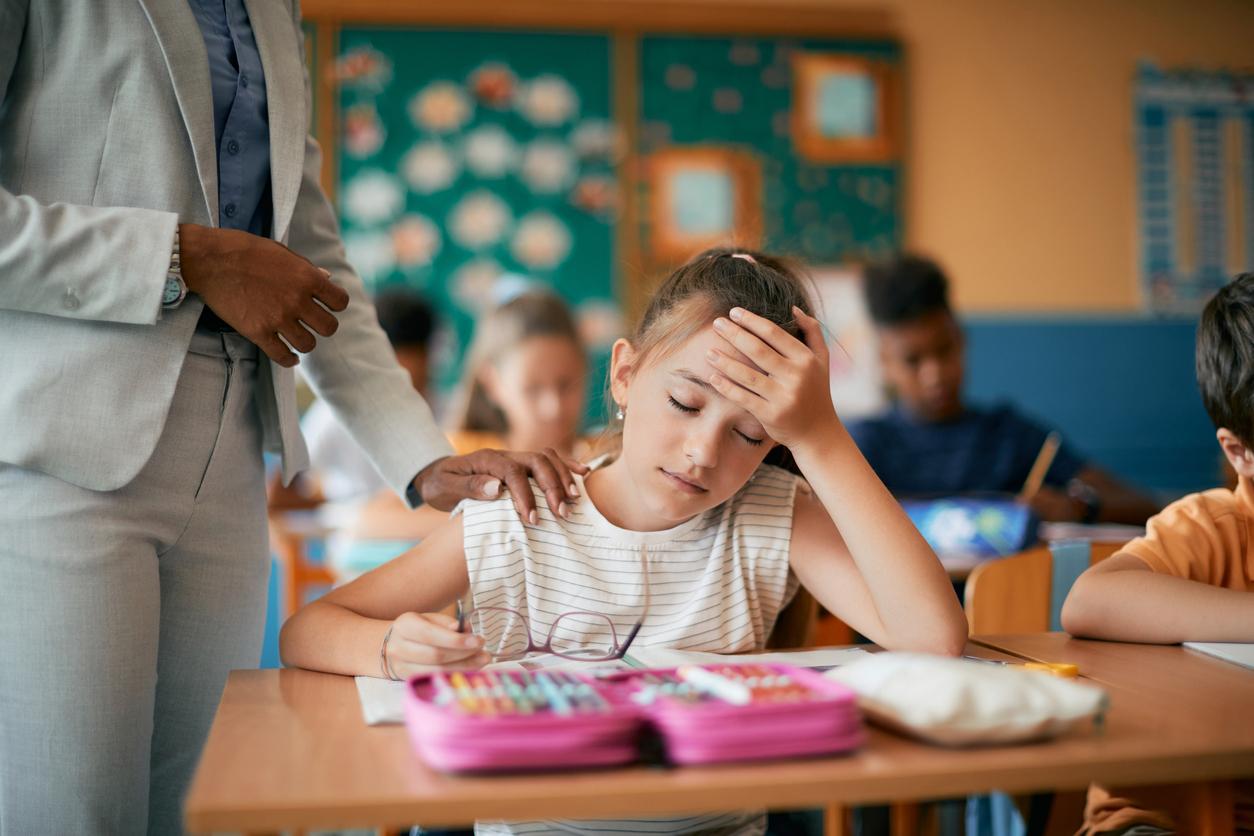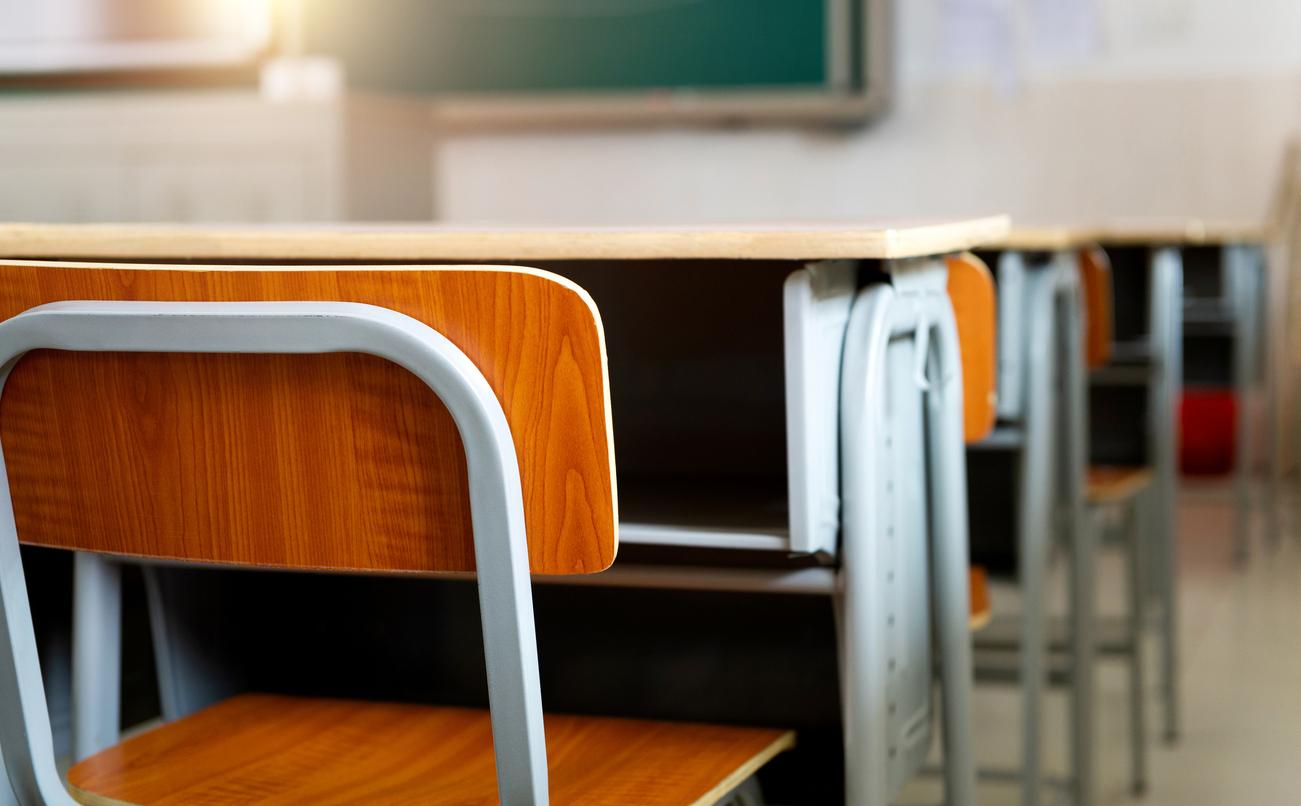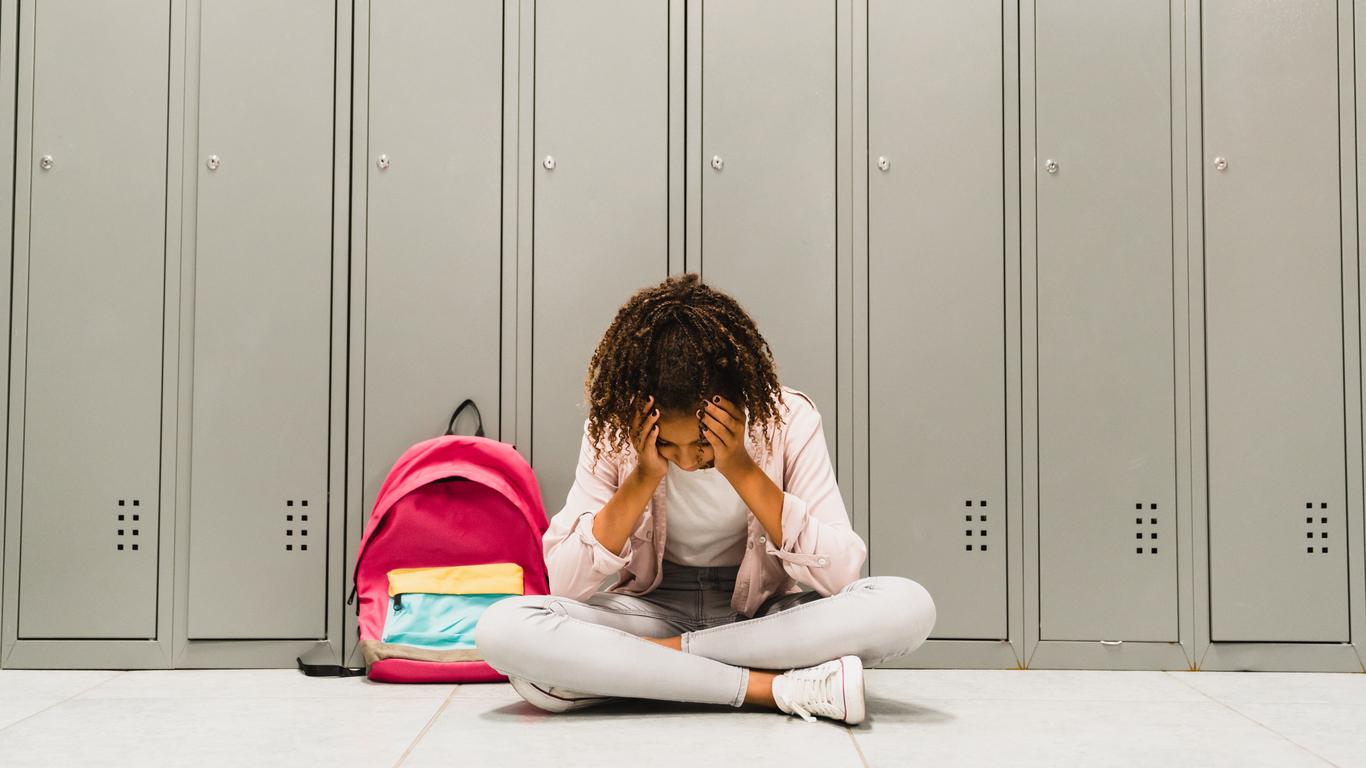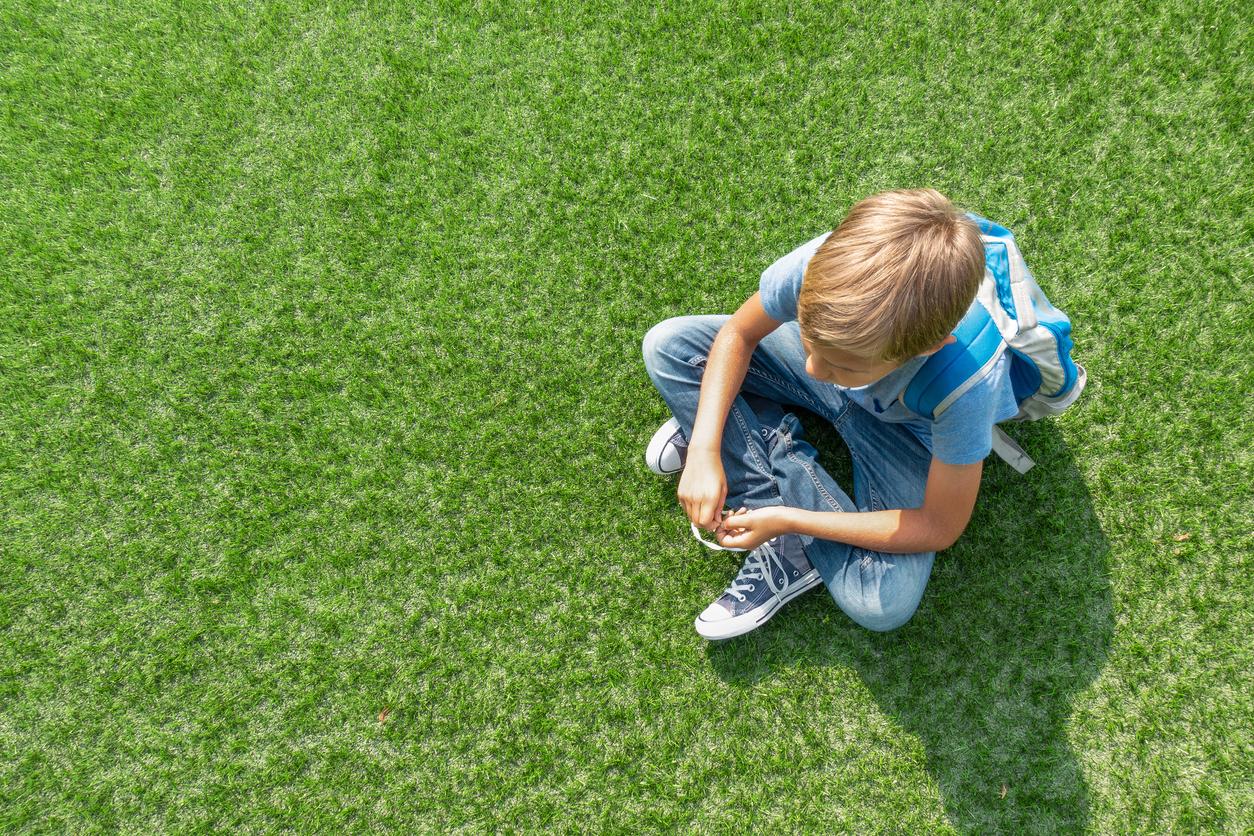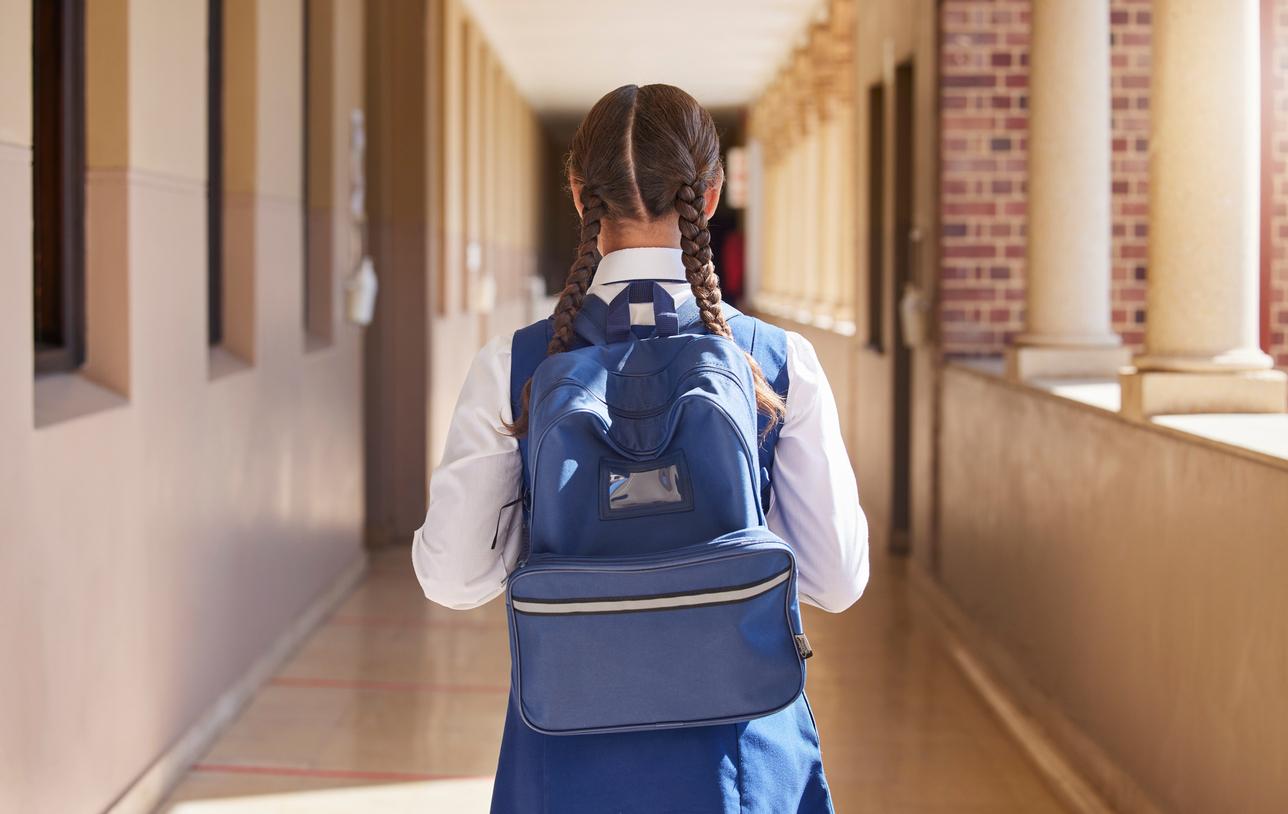- School bullying: what are we talking about?
- What are the consequences of bullying at school?
- How to detect bullying in children?
- School bullying: what to do?
“Just because you’re small doesn’t mean you have small problems.” This message was chosen to wear throughout this school year the sixth anti-harassment awareness campaign between students. It was unveiled in November 2020 on a national day that became international, with the first conference co-organized by France and UNESCO – virtual because of Covid.
If the health crisis has undoubtedly suffocated it a little, the objective remains: to sensitize children from an early age and to change the representation of adults, so that they do not consider conflicts between students as mere court bickering. of recess. From CP to high school, at least 10% of students are affected by a scourge that requires “to focus on supporting victims “, recalls Jean-Pierre Bellon, professor of philosophy and pioneer in the fight against bullying at school.
School bullying: what are we talking about?
What is the definition of school bullying? From the student’s physique to his lifestyle, including his culture, his social environment, his temperament or his sexual preferences, everything can be a pretext for harassment. Pushes, blows, mockery and sidelining, nicknames or insults, degradation or theft, spread of rumors, photos, threats, direct or via social networks: its variations are innumerable. What characterizes this harassment “which is practiced both in the school and in the surrounding area”, specifies Nicole Catheline, child psychiatrist specializing in education, it is the repetition of negative actions voluntarily brought against the victim. This repetition, which traps her in the grip of her comrade (s), distinguishes harassment from isolated fights and disputes.
If conflictual relationships between children or adolescents are inherent in their development, “the responses of adults have the power to extinguish them or on the contrary to stir them up, risking turning them into harassment”, warns Dr. Catheline.
What are the figures for school bullying in France? Insidiously, these repeated attacks significantly impact childhood and adolescence nearly 700,000 students approximately, all social categories combined (source 2015 victimization survey – DEPP). In addition, 18% of middle school students declared in 2017 to have suffered at least one violence via social networks or the mobile phone (identity theft, humiliating videos or spreading rumors). For 4.5%, the attacks were repeated, constituting cyberstalking (Source: 3rd national survey “School climate and victimization”, Ministry of National Education.)
What are the consequences of bullying at school?
They are terrible. A quarter of victims have already considered suicide. Some take action, at the age of 11 or 13, such as Matteo and Marion in 2013, Evaelle in 2019, whose tragic deaths have been publicized, while many other equally dramatic situations remain in the shadows. It is estimated that 25% of absenteeism in college and high school is due to fear created by bullying.
In all cases, “it always worsens an already hesitant self-esteem”, explains Dr. Catheline. For victims who are not recognized, listened to and helped, it can permanently alter the quality of life, including in the long term: “It is a lifelong injury, which will make the individual always worried in front of a group. The slightest subsequent encounter with a situation of harassment, even if he is not the victim, exposes him to the risk of decompensation. depressive by making him relive what he went through. “
How to detect bullying in children?
Whatever his age, he does not talk about it directly. Isolated, ashamed, thinking himself responsible for his “nullity”, he is also afraid to pass for a balance, “to upset his parents, to have his computer removed and that they go talk to the teachers”, lists the child psychiatrist. However, harassment is not so invisible, insists Jean-Pierre Bellon: “This is already happening often in progress. It is not difficult for a teacher to see that a student is never integrated into group work, to hear mocking nicknames. “
Or to spot a “leader” who talks all the time, making the whole class laugh, likely to turn into a stalker: “A rowdy classroom is a great place for harassment. “
At home, the cry for help is expressed by a host of symptoms. Dropping out of school or loss of desire to learn, isolation, risky behavior (alcohol, drugs, scarification), late period in adolescent girls, return of bedwetting in a little one, stomach aches, loss of appetite, disturbed sleep, eczema, irritability, aggressiveness … These signs are not specific , explains Dr. Catheline: “We can find them in other circumstances, such as a family reunion. But they require frankly asking the question – and coming back to it a few days later if necessary – explaining clearly:” It can happen that we feel different and harassed; if so, you can tell me about it or write it down, you will not be a balance. And if you do, we’ll decide how to act together. “
School bullying: what to do?
The specialists are clear: as soon as the child talks about it, you absolutely have to believe it, and react immediately. “If he needs it, we can of course take him to a psychologist, but that’s not the only solution, warns Dr. Catheline. Limiting its support to a medical consultation externalises and externalises a problem that must above all be resolved at school, since that is where it is happening. “
It is therefore first to the management of the school, college or high school that it is necessary to speak about it. All adults, from parents to teachers including the rectorate, “must then work in partnership around the child “,recalls Jean-Pierre Bellon, who would like each establishment to have a dedicated team, “not to look at the suffering of the child, but to put an end to the harassment situation as quickly as possible.”
According to the Ministry of National Education, the risks of bullying are greater at the end of primary school and in college.
Links and numbers to know:
- 3020 : toll-free number for psychologists and education professionals for victims, parents and witnesses of bullying, from 9 a.m. to 8 p.m. Monday to Friday, from 9 a.m. to 6 p.m. on Saturday.
- 0 800 200 000,Netecoute.fr, platform (toll-free number and Internet) dedicated to cyberbullying, at the same times.
- Harassment-entre-eleves.com
- Marionlamaintendu.com
- My child is the victim of bullying: what to do? (Ministry of Education)
Thanks to our experts:
- Jean-Pierre Bellon, professor of philosophy, pioneer in the fight against bullying in France and director of the ReSIS center (Center for Resources and Systemic Studies against School Bullying).
- Dr Nicole Catheline, child psychiatrist, president of the scientific council of the French Society of Child and Adolescent Psychiatry and associated disciplines.
Read also:
- Harassment promotes chronic disease
- Harassment: students “seeds of ambassadors” in colleges









